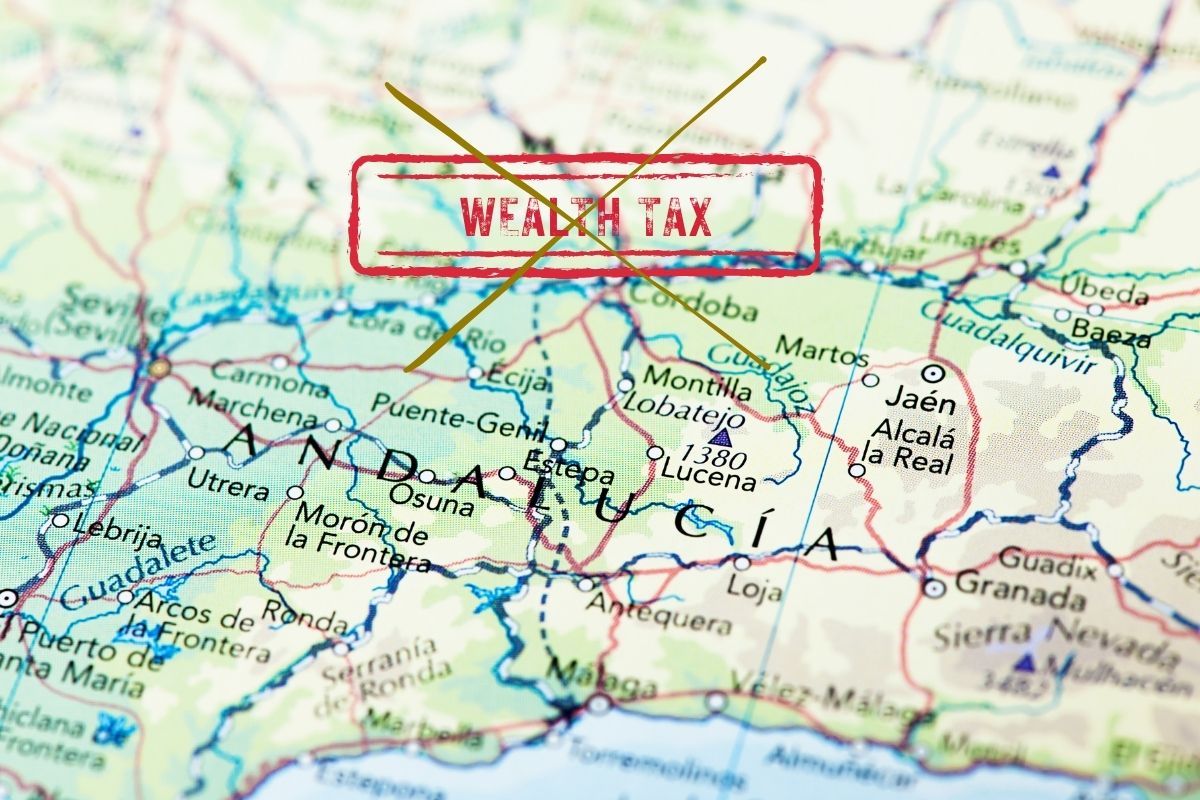In recent years, the debate surrounding wealth tax has gained significant attention, especially in the context of Spain’s Andalucia region. Andalucia is one of the most populous regions of Spain and has a strong agricultural and tourism-based economy. In September 2022, the Andalucian government announced the abolition of wealth tax.
A tax haven called Andalucia
By Charles Hutchinson
This article is published on: 24th April 2023
The decision to abolish wealth tax in Andalucia was based on the regional government’s belief that it was an unfair tax and discouraged investment and economic growth in the region. The tax was seen as a deterrent for high-net-worth individuals (HNWIs) and business owners, who were seen as crucial for job creation and economic stimulation.
However, critics of the decision argued that wealth tax was an important source of revenue for the government and helped to reduce inequality in the region. They argued that the abolition of wealth tax would only benefit the rich and widen the gap between the rich and poor in Andalucia.
To address these concerns and also that it was unfair to all other autonomous regions (except Madrid which also scrapped wealth tax), the Federal government introduced a new tax called solidarity tax. Solidarity tax is a progressive tax that aims to reduce inequality and generate revenue for the government. It is applied to all autonomous regions. If a region has no wealth tax, then the solidarity tax is applied. If, however, a region already has wealth tax in place, then the solidarity tax is removed. The tax is based on a sliding scale, starting with HNW individuals with assets of €3m and above. There are three bands, the lowest rate being 1.7% which rises to 3.5% on assets worth €10m and above.
The introduction of solidarity tax was seen as a positive step by many, as it addressed concerns about inequality and raised much-needed revenue for the government. However, some critics argued that the tax was not enough to make up for the loss of revenue from the abolition of wealth tax. However, it has allowed many to escape wealth tax on assets under €3m, especially if those assets are held jointly. This is seen as attractive by many resident expatriates as it mitigates the impact of wealth tax (in effect there is no wealth tax for a couple on assets below €6m).

In the case of Andalucia, the abolition of wealth tax and introduction of solidarity tax highlights the ongoing debate about the role of taxation in reducing inequality and promoting economic growth. While some argue that wealth tax is an important tool for reducing inequality, others argue that it discourages investment and entrepreneurship. What is clear is that it is part of a concerted move to make the region attractive to those who would stimulate economic growth. For example, inheritance tax has been removed and capital gains tax scrapped on all first homeowners over the age of 65. Income tax is being lowered by at least 4% and water tax has also been abolished. All of which represents a strategic move to lure back permanently those who had moved away, including to nearby Portugal for example. Ten of the top 20 wealth tax payers in 2019 left Andalucia in 2020, resulting in a loss of income for the region of nearly 18 million Euros (3.5 m in wealth tax and 14m in personal income tax).
The Spectrum IFA Group is committed to helping expatriates navigate their way through the taxation minefield. Our disciplined financial advice process ensures that valuable planning opportunities are fully utilised, for optimal tax efficiency on assets, income, investments and, eventually, inheritance for your beneficiaries. By doing so, we can demonstrate, perhaps surprisingly to some, that Andalucia truly is a tax haven, not just in Spain but in a wider European context.
Whether you are planning to move here or are already a full time or part time resident, please contact me for a no fee and no obligation chat – perhaps over a coffee?


